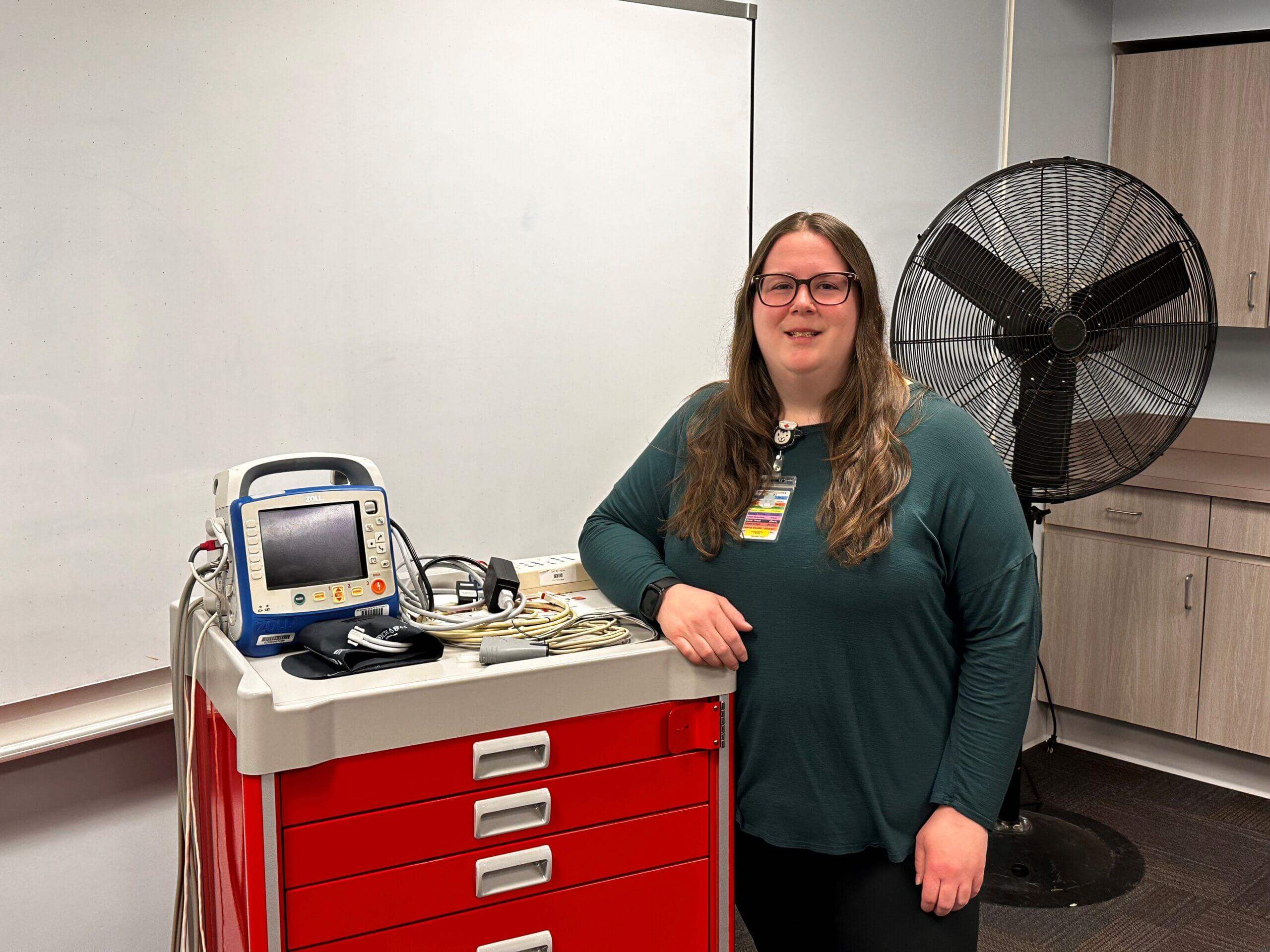Nursing Week – Nursing in the North with Brittany Lamb
Brittany Lamb, a regional clinical educator in Thompson, finds immense fulfilment in her job, which combines nursing, teaching and mentorship.
Following in her grandmother’s footsteps, Lamb pursued her health-care education at University College of the North and went on to work in the Thompson Hospital emergency room. As her family grew, she needed more flexibility and took on a role that allowed her to continue some clinical work but also welcomed new nurses into the fold and prepared them for their careers.
“My position is nursing education within the health-care system. I teach frontline staff courses and orientation and provide clinical unit teaching,” she says.
“I also do policy work, building policies that guide clinical practice for nursing, and provincial work, where we help roll out provincial education pieces to our facilities. And I still work a little bit clinically on the unit.”
Much of Lamb’s work centres around best practices, so she constantly researches, updates and educates to help nurses navigate the ever-changing health-care system. Lamb teaches orientation sessions, provincially mandated courses, facility policy and processes, and emergency-based courses such as advanced cardiac life support and safe patient handling.
Lamb’s position is regional, which means travel throughout the large and remote Northern Health Region (NHR). The NHR has a population of slightly more than 74,000 people spread over 396,000 square kilometres, accounting for just under six per cent of the provincial population. The main NHR sites include Thompson, Leaf Rapids, Gillam, The Pas, Flin Flon, Snow Lake and several smaller public health sites. The distance and remoteness can present challenges.
“Travel is an issue for staff and patients,” Lamb says. “You have to take the weather into account when planning anything, when we plan courses or when we want to go to some of our smaller sites. Sometimes we have to drive four hours north of Thompson on gravel roads. We are quite far from other resources. So those types of things can be challenging.”
Another challenge is attracting nurses to the North. But for Lamb, the beauty of the area and the resilience of the people balance out the challenges. She cherishes the many lakes, trees, fishing and opportunities to be out on the land.
“I feel quite passionate about the North. It’s far. It can be challenging, but I’ve met some of the most amazing people through my work. You’ll find some of the most resilient and amazing people in the North, and for many people, the North keeps drawing you back,” she says.“You’ll get to do work in the North earlier in your career than you would be able to do in the South; opportunities for work and growth up here are huge.”
The themes for National Nursing Week 2024 are “changing lives” through patient impact and advocacy and “shaping tomorrow” through innovation and education. Lamb sees both those things happening in the NHR. She’s proud of the advocacy she’s seen and been a part of. Thanks to the diligence and persistence of nurses in Thompson, the city now has an outpatient IV program, which has cut down wait times for receiving outpatient IV infusions and increased comfort and accessibility for patients.
Lamb is excited about the innovative work being done in the region to better serve the Indigenous population of northern Manitoba. In partnership, MKO/KIM and Northern Health Region recently issued a declaration to address Indigenous-specific racism. Furthermore, her job as an educator directly impacts the next generation of nurses, and she highly values the ability to connect with new nurses and support them through their training and early careers.
“My job is closely tied to the next generation. We do an orientation session for students when they come into our facilities to do their final placement. That’s where we meet people; then they know who we are. We find them in our facilities when they’re working, and we’re able to connect with them,” she says.
“We want to support them as best we can with robust orientation and then mentorship programs so we can keep connected with them as they work through that first year in nursing because it can be tough.”
By Kristin Marand

